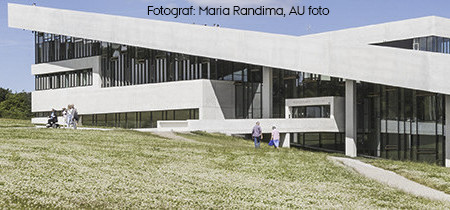
 Jos Aarts
Jos AartsDr Jos Aarts is Assistant Professor at the Institute of Health Policy and Management of Erasmus University Rotterdam. He is also an Adjunct Associate Professor at the University of Victoria in Canada. He was a Research Associate Professor of Biomedical Informatics at the University at Buffalo, NY.
His research interest is sociotechnical understanding of health informatics and comprises the impact of health IT on professional work practices and workflow, usability and safety of HIT, and medication safety and decision support systems in particular. His research papers have amongst others appeared in Health Affairs, Health Technology and Policy, the Journal of American Medical Informatics Association, the International Journal of Medical Informatics, Methods of Information in Medicine and BMC Medical Informatics and Decision Making.
Dr Aarts has been a visiting scholar at Oregon Health and Science University, Portland, Ore, the University of New South Wales and the University of Sydney in Australia and the University of Pennsylvania in Philadelphia. He is a member of the American Medical Informatics Association (AMIA), the Association for Computer Machinery (ACM) and the Association for Information Systems (AIS). He is on the editorial boards of the Journal of the American Medical Informatics Association, International Journal of Medical Informatics, BMC Medical Informatics and Decision Making, and Health Technology and Policy. Dr Aarts is an elected Fellow of the American College of Medical Informatics.
Medication errors are one of the most cited for preventable patient harm. Patients are especially vulnerable at transitions of care. It is the moment that new medications are prescribed, old medications renewed or terminated, and often dosages and administration routes changed. A transition poses a risk for loss of information, a change or abandonment of a treatment plan or discontinuity of care. Especially elderly patients with multiple comorbidities. Until now technical solutions have been sought to address the problem of medication errors. Electronic medication prescribing systems with drug interaction alerting have been implemented widely in hospitals in many Western countries. Increasingly bar-coded drug administration systems are being introduced at the bedside. Studies show reduction in medication prescribing and administration errors. However, these solutions only work at a single point where specific decisions need to be made. At transition many activities take place, such as checking what medications patients are taking, what medications are still appropriate, what new medications need to be prescribed and how lists for patients, different providers and stakeholders can be kept up-to-date. The ensemble of these activities is known as medication reconciliation. Information technology has been introduced to compare medication lists to ensure that current medication is correct given the condition of the patient, but it is still in the experimental stage. As patients move across health care systems, it is clear that there are many transition points, and consequently medication reconciliation occurs at each of these points. Medication safety is therefore a problem of infrastructure. The basic question is how medication reconciliation can be embedded in a health care system that is so fragmented. Fragmentation is not only a consequence of different health systems, but also of information technology that still has limited capability of communication and interaction. With these starting points, I aim to outline a view how medication safety and infrastructure can be integrated.
 Linda Hogle
Linda HogleLinda Hogle is Professor in the Department for Medical History and Bioethics, and a Fellow at the Wisconsin Institute for Discovery at the University of Wisconsin-Madison. Prior to her academic career, she had clinical experience in medical technology and worked in health care strategic planning and hospital administration.
Her research interests focus on socio-cultural and ethical issues in emerging biomedical technologies, including regenerative medicine and emerging data infrastructures in healthcare. Themes throughout her work include the way standardization is resisted in evolving infrastructures, and the way risk is conceptualized and managed.
Recent publications include “Data-intensive resourcing in healthcare” (BioSocieties), “Ethics and politics of infrastructures: creating the conditions of possibility for big data in medicine” (in Mittelstadt and Floridi (eds) Ethics of Biomedical Big Data), “Regenerative Medicine Ethics: Governing Research and Knowledge Practices” (Springer, 2014) and articles in journals such as Medical Anthropology Quarterly, Social Studies of Science, Science Technology and Human Values, and Journal of Law, Medicine & Ethics.
As new database curation, storage, and analytics technologies come online, healthcare institutions have the opportunity to use more kinds of data and for more purposes. Key challenges include a lack of interoperability (especially for complex data created originally for other functions), discerning which data are clinically and organizationally operational, and protecting sensitive data as it travels through uncustomary circuits. Such challenges are particularly steep in the U.S., since there is no long history of the use of electronic health and other administrative records, as in many European countries. Paradoxically, while federal-level incentives and new organizational forms improved this situation, healthcare reform efforts—and recent attempts to undo them—have created a sense of urgency to intensify data resourcing and deploy it in new ways to comply with new legal mandates. In particular, the shift to so-called “value-based” systems aligns payment with patient outcomes rather than reimbursing providers for services ordered. This is a sea-change requiring new metrics for tracking both patient and clinician performance and for re-ordering cost accounting and operations around new concepts of risk. As if this situation wasn’t tumultuous enough, a new presidential administration threatens to disassemble many of the institutions and mandates that the 2010 Affordable Care Act instantiated, leaving much up in the air. This paper discusses healthcare information infrastructures under uncertainty, focusing on the social and institutional practices that evolve in the dynamics between legal and political mandates for economic performance and healthcare imperatives to provide quality care.
 Brit Ross Winthereik
Brit Ross WinthereikBrit Ross Winthereik is a science and technology studies scholar with 4 years of anthropological training and a profound experience in ethnographic methods.
For 18 years she has been working academically with questions around the role of science and technology in society, specifically targeting and participating in research on infrastructures, including IT, knowledge making, and methodology.
She has conducted extensive research upon healthcare informatics, and is recognized as part of a second generation of actor-network theory (ANT) scholars and has recently been invited to participate in a companion to actor-network theory that brings together “40 cutting edge second generation or post-ANT scholars from around the world”.
She has published in leading STS and anthropology journals. Her book Monitoring Movements in Development Aid' with Casper Bruun Jensen (MIT Press, 2013), and she is currently collaborating with Laura Watts on a publication on 'Energy Worlds' coming out of the collective research project 'Marine Renewable Energy as Alien: Social Studies of an Emerging Industry'. Winthereik is head of the Technologies in Practice faculty group at the IT University of Copenhagen, which includes the ETHOS Lab - a space for situated analytics and digital methods experimentation. She is Principal Investigator of the Velux sponsored research project Data as Relation: Governance in the age of Big Data.
A Dutch team of governance scholars have defined current problems in the public sector as ‘wicked’. ‘Wicked problems’ are problems with a high degree of complexity like how to best share the responsibilities for patient care across institutional and professional boundaries. STS and CSCW have been thinking about patient work as part of health care infrastructures for more than a decade. How to think about new public governance through the lens of patients as part of health care’s infrastructures? In my talk, I revisit previous work on patients who are enrolled as partners and compare with more recent work on digitalized citizen-state interactions. I mobilize this research for a discussion of how to think about how to govern patients who interact in digital environments that are messy and quite hard to surveil. Can we still speak about infrastructures of health care, when it is unclear what exactly they transport and who is responsible for the information